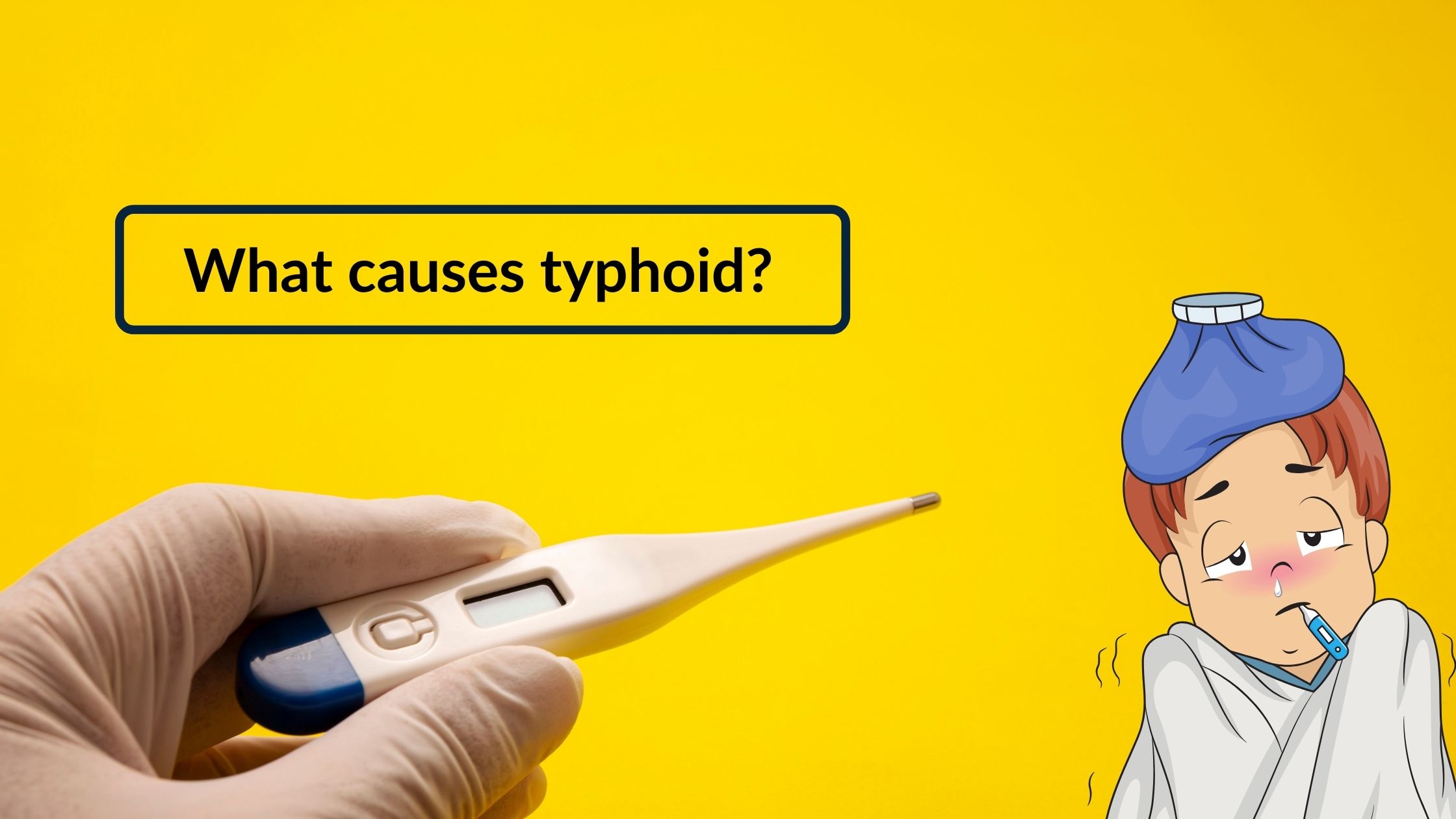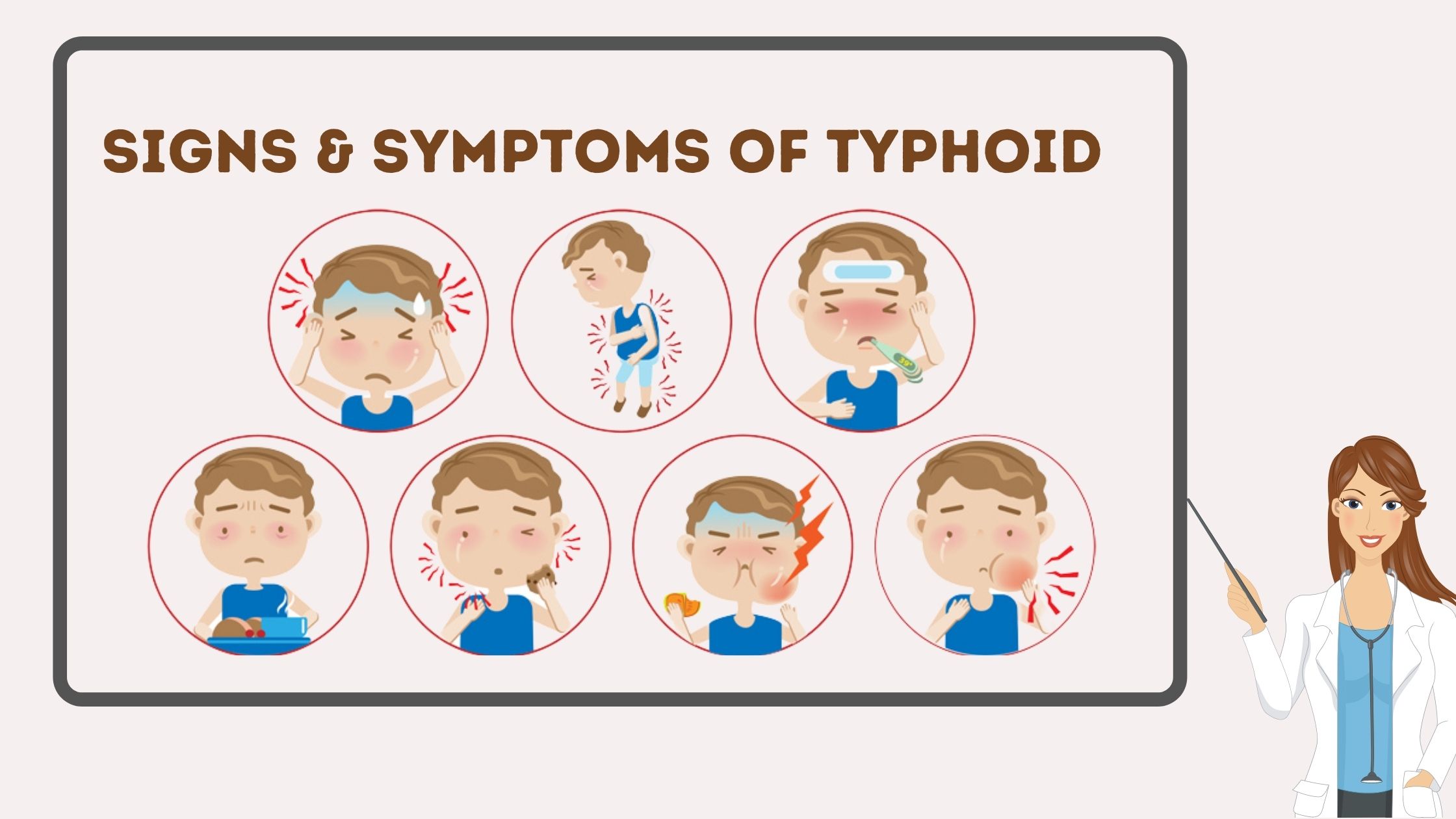

Typhoid fever is a condition occurring because of bacterial infection. The bacteria spread through contaminated food and water. Medical science has grown to be able to treat the disorder without complications.
Salmonella Enterica serotype Typhi bacteria cause typhoid. We also know it as enteric fever after the bacteria. Salmonella Paratyphi bacteria, but the repercussions are comparatively less.
Typhoid causing bacteria survives in water or food. The primary means of transmission is through the consumption of contaminated food and water.
Other causes of typhoid are:

From the time coming into contact with the bacteria, the typhoid fever symptoms might take one or two weeks to appear.
The symptoms of typhoid fever include:
Chest congestion, abdominal discomfort, and vomiting are other indications of enteric fever. Patients with advanced stages of typhoid show intestinal bleeding and intestinal perforations.
Other traits of typhoid complications are:
Once the S Typhi bacteria enter the body, it enters the bloodstream via the intestine. The bacteria invade the liver, spleen, and bone marrow and multiply, causing weakness. The subject might also develop a high fever as the immune system fights back the infection.
The presence of the bacteria is confirmed by blood tests that look for S. Typhi bacteria. If the results are inconclusive, they do culture tests to assess the presence of the bacteria in the body.
For generating the cultures, stool, urine, or bone marrow sample are collected from the patient. The samples are then placed in a medium that encourages the growth of the bacteria. After this, the cultivation is then placed under the microscope to check the presence of the S. Typhi Bacteria to confirm Typhoid fever.
Typhoid can be treated if detected early. The chief cure for typhoid fever is antibiotics. Antibiotic therapy kills the Salmonella Typhi bacteria.
With typhoid fever treatment and proper food intake, most people show improvements in 2-3 days. One can expect full recovery with a continuation of the treatment.
The most commonly prescribed antibiotics are:
Long-term use of these drugs is harmful to the body. It should be taken under the supervision of doctors. Unsupervised consumption might lead to making the bacteria resistant to antibiotics, causing severe implications. Not just this, one should not consume medication without a doctor’s advice.
Along with the antibiotics, other treatments include:
It is easy to prevent typhoid – watch what you eat and drink.
One way to boost up your immune system is through vaccination. Having vaccinations can avoid infection by 50%-80%. So make sure to take your vaccinations on time.
Typhoid is currently one of the treatable diseases. In case you suspect an infection, contact us immediately and get the best treatment at Vydehi. Do not self-medicate but reach out to professionals for a complete cure.
Disclaimer: The information included here is only for knowledge sharing purposes, and the blog is not intended to be a substitute for diagnosis, medical advice or treatment by a healthcare professional. Because of individual needs appropriate advice, the reader should consult their doctor to determine the appropriate disease depending on their situation.

 Emergency Number
Emergency Number